Join a community of readers who are committed to Jewish stories
Sign up for JBC’s Nu Reads, a curated selection of Jewish books delivered straight to your door!
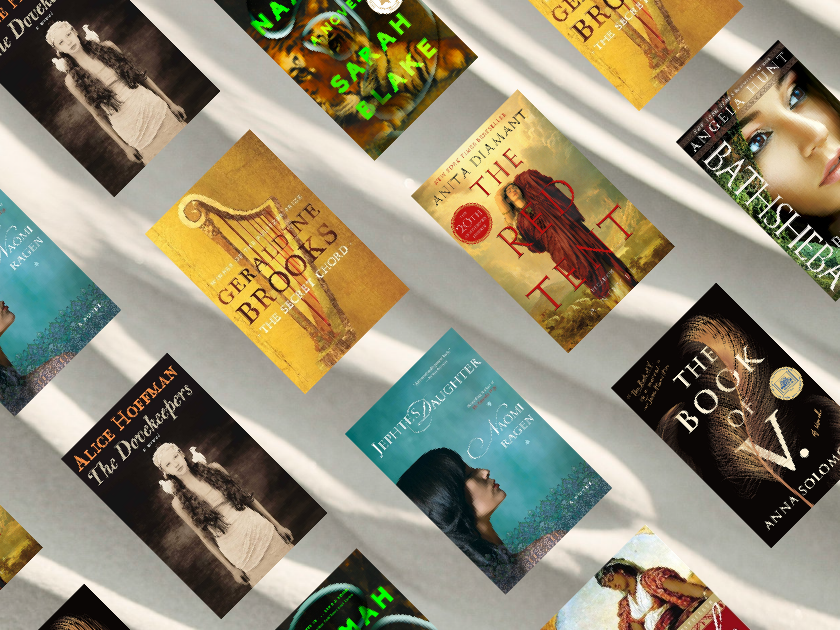
Have you ever wondered why pomegranates appear so often in Jewish traditions? Many say it’s because a pomegranate is rumored to contain 613 seeds — the same number as the commandments in the Torah.
So when my publisher suggested featuring a pomegranate on the cover of my latest novel, Counting Backwards, I was thrilled. The cover designer saw it as a symbol of fertility, a key theme in the book. But for me, the connection ran deeper. The Torah’s 613 commandments represent justice, morality, and the responsibilities that are attached with faith — all values my characters fiercely uphold as they fight for what’s right.
I was excited to have this visual connection between the two female protagonists in my book and the many icons portrayed in the Torah.
While a great many of the celebrated heroes in the Hebrew Bible are mostly men, if you look closely, you can see the text is actually filled with women who shaped Jewish history. Their stories are largely overlooked or incomplete, but they are there. It’s a frustrating and familiar concept.
The pomegranate, this symbol of Jewish righteousness, led me to revisit several novels that bring these overlooked biblical women to life — stories that celebrate their bravery, resilience, and the power of standing up for what’s right.
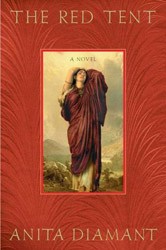
The Red Tent by Anita Diamant
This book imagines a world where Dinah has a voice, where the women around her share wisdom, strength, and a sacred bond. In Genesis, Dinah was abducted and assaulted by Schechem, but it was the way her brothers retaliated against Schechem that took centerstage. In Diamant’s version of the tale, Dinah is so much more than a mere footnote, becoming instead a healer and midwife who changes the course of other women’s lives and her own.
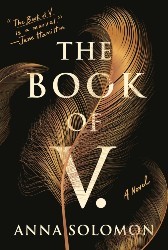
The Book of V. by Anna Solomon
This novel intertwines the stories of three women across different time periods: a modern-day mother in Brooklyn, a 1970s political wife, and the ancient Queen Esther. Revealing how women’s struggles with autonomy and societal expectations echo across history, the novel reimagines the story of Esther, questioning who gets to control their own fate and emphasizing how important her courage was during a crucial moment in Jewish history.

Naamah by Sarah Blake
In this lyrical retelling of Noah’s ark, Naamah (Noah’s wife as named by Blake) takes the spotlight. During the difficult days of rain and caring for her family and the many creatures aboard the ark, Naamah questions her roles as wife, as mother, and maybe as something more. While her husband follows the Lord’s commands without question, Naamah wrestles with doubt. The book emerges as a poetic feminist meditation on survival, faith, and personal agency.
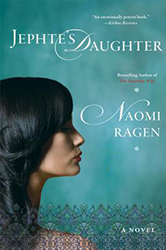
Jephte’s Daughter by Naomi Ragen
Inspired by the biblical story of Jephthah’s daughter, but set in a contemporary Orthodox world, this novel explores themes of sacrifice, obedience, and female agency. When Batya, a wealthy Jewish girl, is forced by her father into an arranged marriage with a controlling ultra-Orthodox scholar, she encounters strict rules, isolation, and abusive behavior. Just like Jephthah’s daughter, who was sacrificed by her father, Batya struggles between obedience and self-determination. But she knows she must find the strength to reclaim her identity and independence.
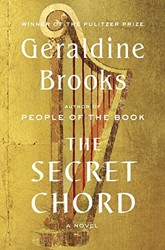
The Secret Chord by Geraldine Brooks
King David is the central figure in this book, but the novel gives weight to the women in his life — Michal, Batsheva, Avigail — who have often been overlooked in traditional biblical retellings. David’s mother, Nitzevet, who is largely absent from the biblical text, only appearing later, in Midrash, is also given a more central role as she explores the challenges of raising a son who is destined for greatness.
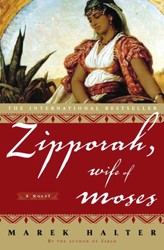
Zipporah, Wife of Moses by Marek Halter
Depicting the life of the Midianite woman who became Moses’ wife, this novel illustrates how growing up in a nomadic tribe resulted in Zipporah’s fierce independence and strong will. When she meets Moses, she recognizes his destiny and stands by him, encouraging his mission to lead the Israelites out of Egypt. Giving voice to a figure who hass long been in the background, the book portrays her as a powerful and passionate woman who’s essential in shaping Moses’ journey.

Bathsheba by Angela Hunt
Bathsheba was the wife of King David and mother of King Solomon. This novel focuses on her transition from a young woman who experiences love and loss to a complex figure caught in a series of personal and political challenges. Like the biblical story, the novel shows Bathsheba as a great beauty who finds herself drawn into a relationship with King David after the death of her first husband. As she rises to a position of influence in David’s court, she grows into a matriarch who plays a pivotal role in shaping Israel’s future.
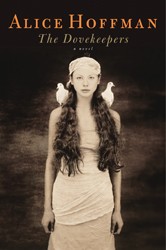
The Dovekeepers by Alice Hoffman
While technically outside of biblical history, this novel, set against the backdrop of the siege of Masada, tells the story of four women whose lives intertwine in the face of war and devastation. Based on historical events, Hoffman’s lyrical storytelling brings to life the resilience and bravery of these women as they struggle to survive, love, and protect what matters most.
The Power of Their Stories
Counting Backwards isn’t biblical fiction, but at its heart, it echoes the same themes: Women who are underestimated, who are expected to stay in the background, and yet who choose to step forward and shape the world around them. Women who refuse to be footnotes.
So, the next time you see a pomegranate in a piece of Judaica, or crack one open to reveal its bursting seeds, think about the stories it represents. Think about the women who have shaped our history and continue to shape our future. And, perhaps, think about the stories still waiting to be told.
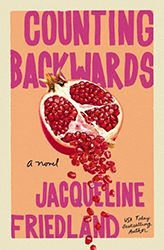
Counting Backwards by Jacqueline Friedland
Jacqueline Friedland is the USA Today and Amazon bestselling author of both historical and contemporary women’s fiction. She worked as an attorney for as long as she could stand it and has been writing ever since. Jackie lives in Westchester, New York, with her husband and four children.